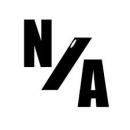Comparing JRuby and Groovy
Rather than stand around and sling mud between the Groovy and JRuby tribes, this session delves deep into the similarities and differences between the two, allowing attendees to make informed decisions about their next Java dialect.
Life used to be so simple in the Java world. The only real decisions
you had to make was which dozen frameworks to use in your project. Now,
dynamic languages have invaded Java land, and you now have lots of
choices. But, to the casual observer, JRuby and Groovy look like pretty
much the same thing, with slightly different syntax. Nothing could be
further from the truth. While they both share lots of commonalities,
they are also quite different. This session delves into those
differences, providing the attendees with enough concrete facts to make
decisions. This session covers differences between type systems,
extending the core JDK, closures, and properties. This session also
covers meta-programming differences, where the languages diverge the
most, including open classes, code synthesis, mixins, interfaces,
intercepting method missing calls, shadow meta-classes, and lots more.
Code is the focus of this talk, with tons of examples. Attendees
leaving this talk will have a clear picture of the real differences of
these new kids on the Java block.
About Neal Ford
Neal is Director, Software Architect, and Meme Wrangler at ThoughtWorks, a global IT consultancy with an exclusive focus on end-to-end software development and delivery.
Before joining ThoughtWorks, Neal was the Chief Technology Officer at The DSW Group, Ltd., a nationally recognized training and development firm. Neal has a degree in Computer Science from Georgia State University specializing in languages and compilers and a minor in mathematics specializing in statistical analysis.
He is also the designer and developer of applications, instructional materials, magazine articles, video presentations, and author of 6 books, including the most recent The Productive Programmer. His language proficiencies include Java, C#/.NET, Ruby, Groovy, functional languages, Scheme, Object Pascal, C++, and C. His primary consulting focus is the design and construction of large-scale enterprise applications. Neal has taught on-site classes nationally and internationally to all phases of the military and to many Fortune 500 companies. He is also an internationally acclaimed speaker, having spoken at over 100 developer conferences worldwide, delivering more than 600 talks. If you have an insatiable curiosity about Neal, visit his web site at http://www.nealford.com. He welcomes feedback and can be reached at nford@thoughtworks.com.

